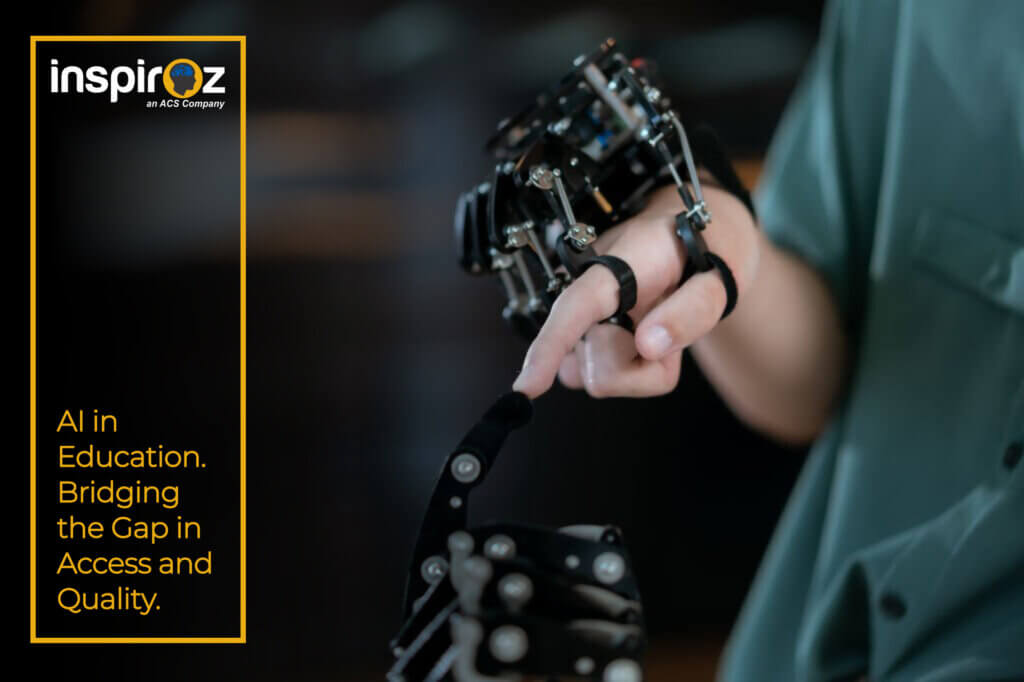The rapid advancement of technology has brought significant changes to various industries, and education is no exception. Artificial Intelligence (AI) has emerged as a game-changer in the field of education, transforming traditional teaching methods and offering new opportunities for both educators and students. This article delves into the role of AI in bridging the gap in access and quality of education, highlighting the various applications and benefits of this revolutionary technology.
AI in Education: An Overview
Artificial Intelligence has the potential to revolutionize the education sector by providing personalized learning experiences, automating administrative tasks, and enhancing the quality of education for learners worldwide. With the global eLearning market projected to surpass 243 billion USD by the end of 2022, the impact of AI in education is more significant than ever.
The integration of AI in education is not just limited to online learning platforms but also extends to various aspects of the learning process, including content creation, assessment, and skill development. As more and more educational institutions adopt AI technologies, it is crucial to understand the applications and benefits of AI in education and its potential to bridge the gap in access and quality.
10 Applications and Benefits of AI in Education
1. Personalized Learning
Conventional teaching methods often fail to address the unique learning needs and preferences of individual students. AI-powered educational software can provide personalized learning experiences, adapting to the learning pace and style of each student. With the help of Machine Learning algorithms, AI systems can analyze students’ learning patterns and adjust the content accordingly, ensuring a more effective and engaging learning process.
2. Task Automation
Educators often spend a significant amount of time on administrative tasks, such as grading assignments, maintaining records, and preparing lesson plans. AI can automate these time-consuming tasks, allowing teachers to focus on more critical aspects of teaching and providing personalized attention to students. By streamlining administrative tasks, AI can make the learning environment more efficient and productive.
3. Smart Content Creation
AI and Machine Learning technologies can assist educators in creating innovative and engaging content for their students. Some examples of AI-powered smart content creation include:
- Information Visualization: AI can enhance the learning experience by providing 2D and 3D visualizations, allowing students to grasp complex concepts more easily.
- Digital Lesson Generation: AI can generate bite-sized learning materials in digital formats, making them accessible from any device and saving storage space.
- Frequent Content Updates: AI can help educators keep their lessons up-to-date by automating the process of updating and notifying users about new information.
4. Adaptable Access
AI can make educational resources more accessible to a global audience by providing features like multilingual support and translation, making it easier for non-native speakers to learn and teach in their preferred language. Furthermore, AI technologies can assist learners with visual or hearing impairments by offering tools such as real-time subtitles for virtual lectures.
5. Identifying Classroom Vulnerabilities
AI can help educators identify and address potential weaknesses in their teaching methods, ultimately improving the overall quality of education. By analyzing data on student performance and engagement, AI systems can provide valuable insights into areas that require improvement, allowing educators to make informed decisions and tailor their teaching strategies accordingly.
6. Closing the Skill Gap
AI-powered educational software and applications can provide affordable and accessible opportunities for students to develop essential skills, helping to close the gap between education and the job market. Additionally, AI can be used to analyze how people acquire skills, enabling the development of more effective learning and development strategies for both students and working professionals.
7. Data-Based Feedback
Feedback is a crucial aspect of the learning process, and AI systems can provide customized, data-based feedback for students based on their performance and progress. This unbiased feedback can help students identify areas for improvement and tailor their learning strategies accordingly, ultimately leading to better learning outcomes.
8. 24/7 Assistance with Conversational AI
AI-powered chatbots can provide round-the-clock assistance to students, answering questions and providing access to relevant study materials. These chatbots can also analyze students’ content consumption patterns and cater to their needs accordingly, offering a more personalized and engaging learning experience.
9. Secure and Decentralized Learning Systems
Data protection and security are significant concerns in the education sector, and AI-based decentralized solutions can help address these challenges. Blockchain technology, combined with AI, can offer secure and transparent learning management systems, ensuring data integrity and protecting sensitive information.
10. AI in Examinations
AI systems can be used to monitor online examinations and detect suspicious behavior, alerting supervisors and ensuring the integrity of the assessment process. By tracking student activity through web cameras, microphones, and web browsers, AI can perform keystroke analysis and flag any unusual activities, making online examinations more secure and reliable.
The Future of AI in Education
The integration of AI in education is still in its early stages, but its potential to transform the sector is undeniable. As AI technologies continue to advance, we can expect to see even more innovative applications and benefits, ultimately bridging the gap in access and quality of education for learners worldwide.
Educational institutions and EdTech startups must embrace AI solutions to address the diverse needs of their students and stay ahead in the rapidly evolving education landscape. By harnessing the power of AI, the education sector can unlock new opportunities for growth and ensure a more inclusive and accessible learning experience for all.
Conclusion
Artificial Intelligence has already begun to transform the education sector, offering innovative solutions to bridge the gap in access and quality. By leveraging AI technologies, educators can create personalized learning experiences, automate administrative tasks, and enhance the overall quality of education for students worldwide. As AI continues to evolve, its impact on the education sector will only grow, revolutionizing teaching and learning for generations to come.




